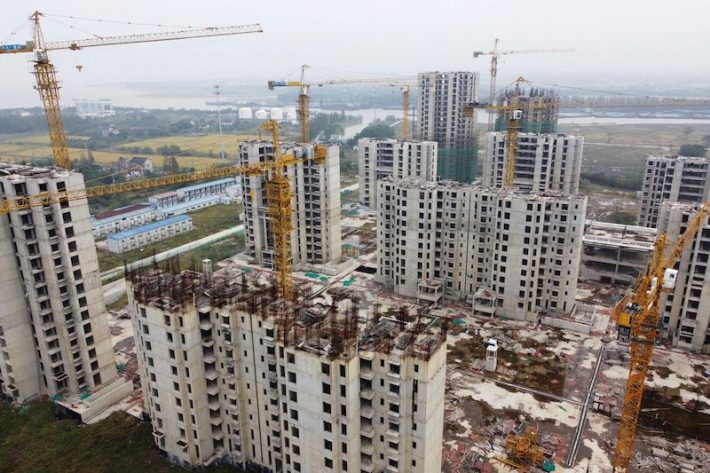The debt crisis in China’s real estate sector has had a spillover impact on property management companies, creating doubts about their governance and sparking a plunge in their shares.
Instances of property managers lending support to cash-strapped developers that are their parent companies has made investors wary about many corporate entities that were once highly valued.
The share prices of property management companies fell a further 7% this month as the latest instances of firms bailing out their parents were revealed.
“The capital market has lost confidence in some of the property management companies, even in those companies that have not seen misuse of funds by their parents,” UBS’s head of China and Hong Kong property research, John Lam, said.
In one of two cases that have unnerved investors, China Evergrande Group said on July 22 an internal probe found that $2 billion of funds held by subsidiary Evergrande Property Services had been pledged to guarantee financing by the group for debt repayment.
In the end, banks seized the money, cleaning out much of the unit’s cash. China Evergrande Group, the world’s most indebted property developer, has been at the centre of China’s property crisis, in which many such companies have defaulted as a result of government moves to deleverage the sector.
ALSO SEE: China Property Crisis to Boost Corporate Defaults: JPMorgan
Service Units Values Plunge
Then on August 1 shares in property manager Jinke Smart Services Group dropped 37% after it said it would lend up to $222 million to parent Jinke Property.
As the crisis developed last year, some property management units issued and sold shares to raise funds that were passed back to parents.
Also, property manager Shimao Services Holdings bought a business from developer parent Shimao Group at an unusually high price.
Such doings have not pleased investors. Since mid-2021, valuations for management subsidiaries of distressed developers have plunged from a peak of 25 times earnings to just five to six times, according to Lam, who added that those still above this level could come under downward pressure.
Falls continue. Since the announcement by Jinke Smart Services, the Hang Seng sub-index that tracks major mainland property management companies has lost 7%, while the broader Hang Seng Index is down less than 1%%.
Surge in Impairment Provisions
William Shek, the chief distribution officer of Zeal Asset Management Ltd, a Hong Kong-based hedge-fund manager, said his firm had turned cautious on this sector since the beginning of the property crisis.
“Subsidiaries are unlikely to be shielded from risks if their parent companies get into trouble,” Shek said.
Another concern is the dependability of property managers’ profits. Since so much of their business was providing management services to parents, revenue was limited by how much parents would or could pay, senior executives of two developers said.
Analysts noted property management companies had posted a surge in impairment provisions for receivables in the second half of last year. The trend is expected to worsen in results for the first half of 2022, when more developers were running out of cash.
Analysts are less concerned about units of state-owned developers, which have good liquidity positions and are subject to strict governance requirements.
But state-owned China Resources Mixc Lifestyle Services was targeted late last month by GMT Research, which estimated at least 55% of the firm’s profits came from related parties, including parent China Resource Land.
GMT said the property services unit was trading at 31 times estimated earnings for 2022 but China Resources Land would have little incentive to support its profitability.
China Resources Mixc Lifestyle Services said in an emailed response that its service pricing was transparent and reasonable. Its market-leading valuation was driven by its market development capability, among other things, it added.
- Reuters with additional editing by Jim Pollard
ALSO SEE:
China Property Slump May Worsen Amid Covid Curbs: Analysts
Third of China’s Top Developers Could Default in 2022: Goldman
























